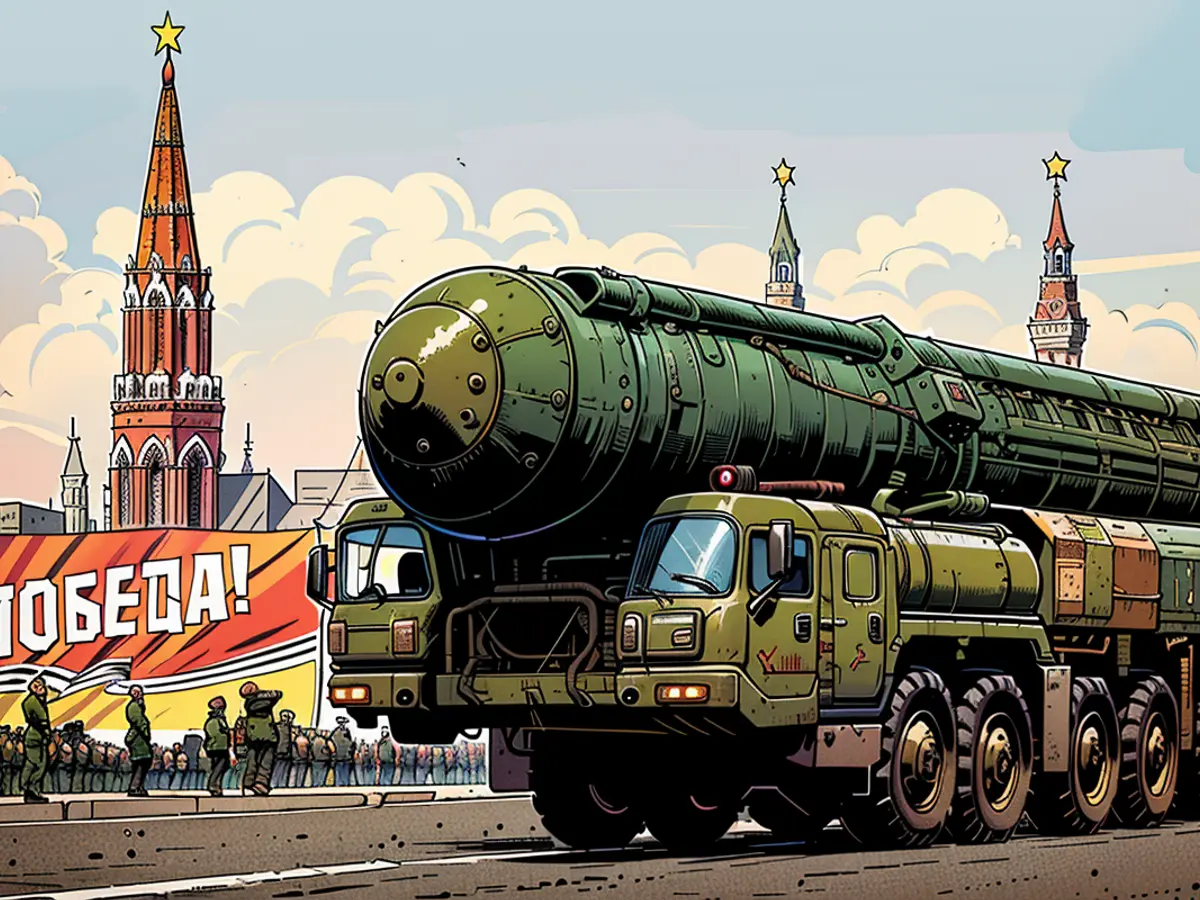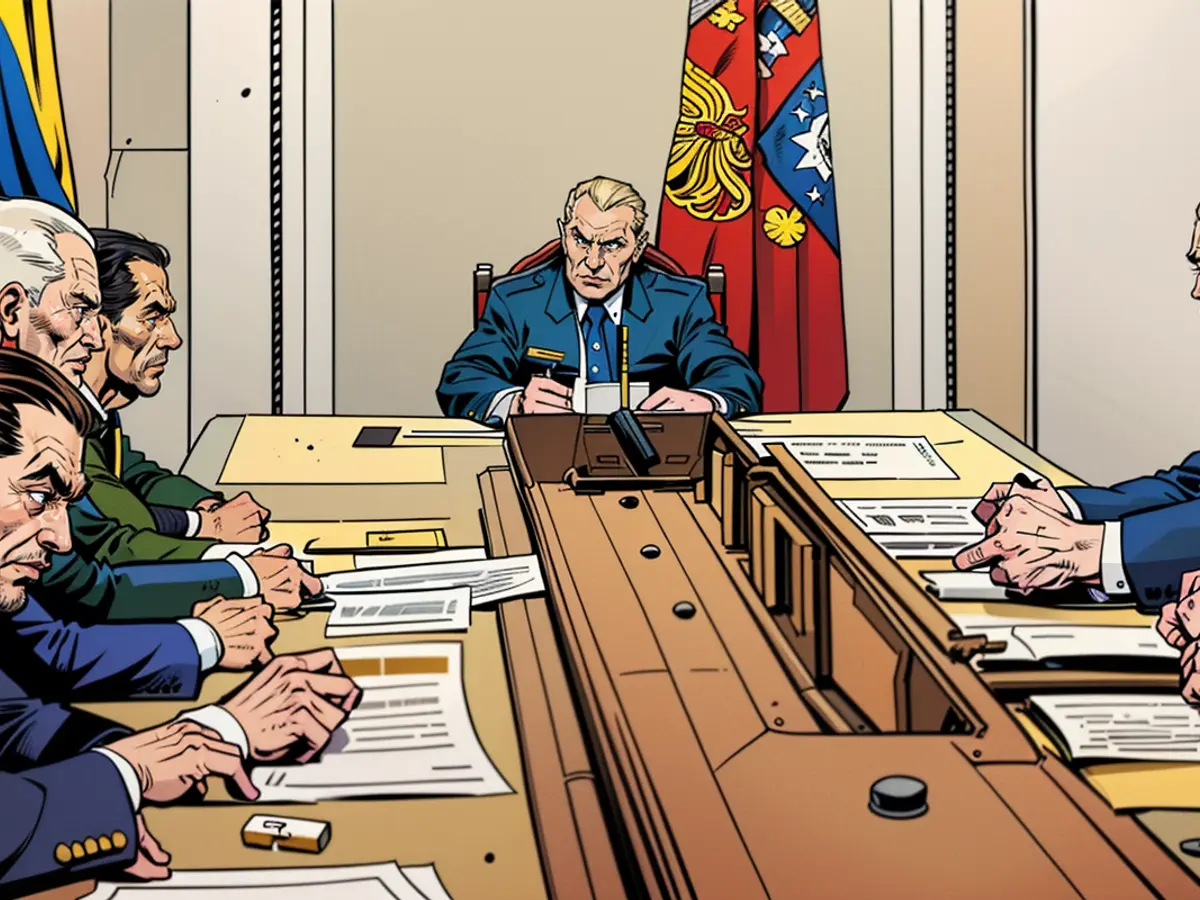Revising his nuclear strategy, Putin alters his nuclear policy prescriptions; however, has the scope of his non-negotiable points expanded?
This week, Putin stirred up the nuclear policy sphere once more by unveiling proposed alterations to Russia's nuclear strategy. During a Security Council meeting on Wednesday, the president revealed that Moscow aims to revise its doctrine, which could potentially lower the threshold for employing nuclear weapons. Putin indicated that Russia would view an assault by a non-nuclear state, backed by a nuclear state, as a "joint attack on the Russian Federation."
In straightforward terms, Putin was sending a message to Washington and its Ukraine allies. This revision in the doctrine follows Ukraine (a state without nuclear weapons since it renounced its nuclear ambitions after the fall of the USSR) seeking long-range weapons from the United States, capable of striking deeper into Russian territory.
The planned adjustments to the doctrine have been designed to make Western strategists ponder twice, as Ukrainian President Volodymyr Zelensky presents his "victory plan" to the Biden administration. By brandishing Russia's substantial nuclear arsenal, Putin is hinting that the costs of equipping Ukraine with such weapons might be too high for the West.
Has Putin’s declaration moved the "Doomsday Clock" nearer to midnight? Putin's announcement elicited intense debates online, with arms control specialists attempting to decipher Putin's threshold language for nuclear retaliation.
Pavel Podvig, an expert on Russian nuclear forces, argued that there was "deliberate ambiguity" in the announcement, particularly regarding what constitutes aggression against Russia. In Russia's present nuclear doctrine, there is no distinction between aggression by nuclear or non-nuclear weapon states, asserted Podvig. "All it requires is an aggression that poses a threat to the existence of the state," he added.
Podvig alluded to a "previous Russian assurance" that Moscow would avoid employing nuclear weapons against non-nuclear weapon states, except when such a state acts "in association or alliance with a nuclear-weapon state."
Russia's new limits may be subtle or inconsistent, stated Podvig. However, that may not be the primary point.
"The language is tailored for the specific situation we're currently in," wrote Podvig. "We recognize what these nuclear-weapon and non-nuclear-weapon states are."
Mariana Budjeryn, a researcher at Harvard Kennedy School's Belfer Center, suggested that the boundaries might primarily exist in Putin's mind.
"There are two noteworthy departures from the 2020 Russian military doctrine," she wrote. "The 2020 doctrine permitted the use of nuclear weapons in response to conventional aggression that jeopardized the very existence of the state. This has now been relaxed to extremely threatening state sovereignty. What does this mean? Who identifies what constitutes these threats? Likely, Mr. Putin."
Budjeryn concluded that the substantive alterations to military doctrine are minimal but offer more interpretative space to the Russian leadership to define nuclear use circumstances.
Putin's public disclosure also underscores the dramatized aspect of nuclear deterrence.
"The spectacle here is essential: the act of announcing 'our doctrine is changing' now has the world's attention, with the implicit message: you should be troubled," wrote Kristin Ven Bruusgaard, director of the Norwegian Intelligence School. "The content of Putin's speech is less striking; various issues receive more detail than before, but the granularity of nuclear thresholds remains as unclear as before – as intentional."
It remains unclear what the actual revised doctrine will appear like, concluded Ven Bruusgaard.
"The key question is what's next? Will we see a document? Will it contain more than what Putin has proposed? Is this a trial balloon or is this the showdown? If so, it's worth noting that changes have been very modest if one were to go through the motions of updating the doctrine."
Ultimately, it's essential to recall that Ukraine has already struck deep within Russian territories, such as drone strikes on the Russian capital and a recent attack that hit a Russian ammunition depot. And the outcome of Zelensky's visit to the US may soon reveal whether anyone in Washington pays heed to Putin's nuclear rhetoric.
The world is closely watching Russia's nuclear strategy following Putin's announcement, with many pondering the potential implications of lowering the threshold for nuclear weapon use. The worldwide debate on Putin's threshold language for retaliation is gaining traction, as experts attempt to decipher the substance of Russia's revised doctrine.
Despite the unclear boundaries of the new doctrine, many believe that Putin's public disclosure is an effective tool to maintain nuclear deterrence and keep the world on edge.








